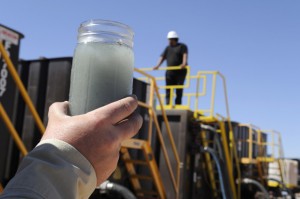New research has found that At 18 sites, the Swedish government’s actions have led to sharply increased emissions of greenhouse gases. This comes despite their pronounced high climate ambitions. Their talk of leadership on climate change cannot be seen as anything but empty words that have no basis in the actual policy, write the think tank Cogito.
The UN climate panel has now published two new sub-reports; one on the impact of climate change and proposals for measures to reduce greenhouse gas emissions. According to the IPCC, it becomes increasingly clear that humanity is causing climate change while our chance to meet the two degree target and avoid an escalating climate change is drastically reduced.
The Swedish government has a high tail carriage in climate policy. The government writes in its latest climate bill in 2009 that “the two-degree target is the starting point for the measures now need to be taken” and that “Sweden should show leadership by what we do here at home, at work as well as in the EU and internationally.”
All 18 areas:
1. Government has little ambition and unclear goals for climate policy
2. The Government does not seem acting for sufficient climate goals in Europe
3. The Government conducts not proposed measures from their own climate investigations
4. The Government does not have a roadmap to Sweden without climate emissions by 2050
5. The Conservatives appeared and stopped the proposal to strengthen the EU’s emissions trading scheme
6. The Government sold the surplus of allowances (Offsetting)
7. The Government has scrapped the CO2 tax for cogeneration in industry
8. The Government does not coordinate traffic planning with climate objectives
9. Government approves new traffic construction of Stockholm
10. The Government allows the expansion of airports and supports increased flying
11. The Government will allow Waterfall’s investments in coal power
12. The Government will let the State pension funds to invest in the world’s largest oil companies
13. The Government subsidizes fossil fuel
14. Government betrays the promise of climate finance to developing countries
15. The Government supported oil exploration in the Arctic
16. The Government saw its own regulatory proposals for reduced meat consumption
17. The Government has scrapped the tax on fertilizers
18. The Government does not support the expansion of solar energy and offshore wind
The government does, however, remarkably little to live up to these climate ambitions. Decision after decision leads us in the wrong direction, which means that Sweden will continue to fall in the Climate Action Network’s international ranking of countries’ climate policies.
The green think tank Cogito In its report the Government’s climate black list examined the Government’s climate policy over the past two legislative periods. We can at 18 sites show how the government’s actions resulted in dramatically increased greenhouse gas emissions. It involves direct political decisions but also for failing to take action when the government had the opportunity. Here we present seven points from the report:
A principle for all climate finance within the UNFCCC is that the money should be additional, meaning that they cannot be taken from the aid budget. Despite this all means that the government used to climate-related assistance taken from the regular aid budget.
The Swedish government says it wants to be a leader in climate work but Cogitos report rather show great reluctance to take the decisions needed to achieve climate goals, both nationally and internationally.
Although we have not taken the figures for the emissions from all the locations surveyed, shows our summary to the government’s actions have led to higher greenhouse gas emissions of at least 25 million tonnes in Sweden during the last two legislative periods. This represents almost half of Sweden’s annual emissions.
If we add in all the decisions that affect global emissions, such as the government’s actions in Waterfalls and National Pension Funds, the greenhouse gas emissions many times greater. The talk of leadership on climate change cannot be understood as anything other than empty words that have no basis in the government’s actual policies and Sweden will thus leave the responsibility to solve the climate crisis to other countries and future generations.
via “The government goes against its environmental objectives and increases emissions” – DN.SE.



